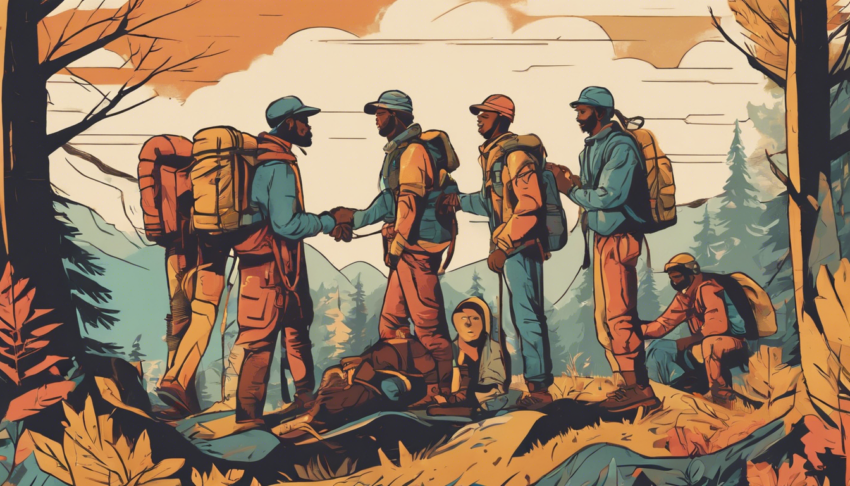In recent years, the allure of outdoor survival has been bombarded by a wave of advertisements promoting rugged individualism, advanced survival gear, and the persona of the lone explorer.
However, beneath this façade lies a troubling narrative steeped in toxic masculinity that perpetuates the idea that survival in the wilderness is a solitary endeavor dominated by one’s physical prowess and the latest high-tech gadgets.
This article aims to dismantle these myths, shedding light on the true essence of outdoor survival—community, cooperation, and the preservation of our natural resources.
We will delve into how the commercialization of outdoor gear has shaped our perceptions of masculinity and survival, and why embracing collective efforts and practical skills is fundamental for thriving outdoors.
Key Takeaways
- Outdoor survival relies more on community collaboration than on individual skills or expensive gear.
- Toxic masculinity in outdoor culture promotes unrealistic survival expectations centered around self-reliance.
- Shifting focus towards practical survival skills and community support can enhance our connection to nature and its preservation.
The Dangers of Individualism in Outdoor Survival
### The Dangers of Individualism in Outdoor Survival
In an age where outdoor survival gear is heavily commercialized, there exists a growing concern regarding the associated notions of toxic masculinity that these marketing campaigns promote.
Many men have been led to believe that survival in the wilderness is a solitary endeavor that hinges solely on their own strength and the sophistication of their equipment.
This individualistic approach not only distorts the true essence of outdoor survival but also creates an unrealistic ideal of masculinity rooted in rugged independence.
The reality, however, is starkly different—enjoying, thriving, and surviving in nature is deeply intertwined with community and connection.
Historical evidence highlights that those who work together during crises often emerge stronger; indigenous cultures thrived on communal practices, showcasing that cooperation is a vital component of survival, which runs counter to the isolative mindset pushed by contemporary survivalist advertising.
Moreover, the environmental ramifications of capitalism cannot be ignored, as rampant consumerism contributes to the degradation of our natural world.
The author advocates for a significant shift in mindset—from an obsession with flashy, often ineffective survival gadgets to a focus on honing practical skills like navigation and first-aid.
These foundational abilities are far more beneficial in preparing individuals for outdoor challenges than the latest gadgetry trending in survival gear catalogs.
In conclusion, while preparedness for emergencies is undeniably crucial, the real secret to outdoor survival lies in collaboration and shared experiences in nature—not in the individualism that overly commercialized survivalism preaches.
The true essence of enjoying, using, and protecting our environment flourishes through collective efforts, reminding us that the journey in the wild is best undertaken together.
Building Community: The Key to Sustainable Outdoor Experiences
Building a robust community around outdoor activities not only enhances the experiences we have in nature but also plays a crucial role in fostering sustainable practices.
When individuals come together to share skills, knowledge, and resources, they contribute to a culture that values cooperation over competition.
This camaraderie is essential in promoting safety and preparedness, making outdoor adventures not just about personal endeavors but about collective progress.
Workshops, local hiking clubs, and community events spotlight the importance of learning from one another, teaching practical survival skills, and reducing our reliance on commercial gear that often distracts from the true beauty of nature.
Furthermore, engaging with the community encourages environmental stewardship as individuals become invested not only in their adventures but also in the preservation of the landscapes they cherish.
Through these connections, we foster a deeper appreciation for the outdoors, advocating for a responsible and sustainable approach that can positively impact future generations.
Support Us: Check out our recommended products on Amazon.


